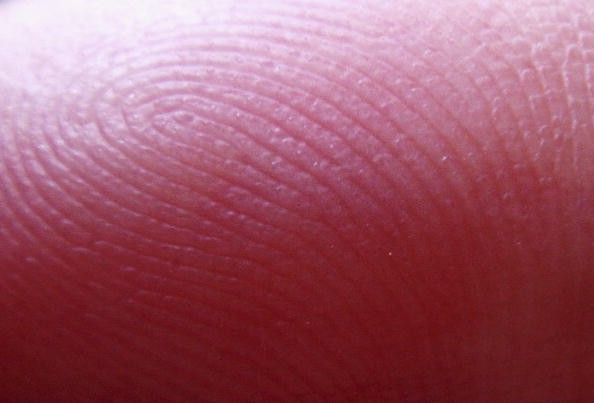
Most people know that chemotherapy can make you lose your hair. But did you know that it can cause you to temporarily lose your fingerprints?
A woman in Mexico found this out the hard way when her bank would not allow her to complete a banking transaction because her fingerprints were unrecognizable. The loss of her fingerprints was due to a side effect of chemotherapy called palmar-plantar erythrodysesthesia.
Palmar-plantar erythrodysesthesia, also called hand-foot syndrome, causes the skin on the hands and feet to become inflamed. In mild cases, the hands and feet might swell and the skin reddens and become tight and tender. There could be a tingling or burning sensation and calluses or blisters might develop on the palms and soles of the feet.
More severe cases can cause cracked, flaking, or peeling skin and severe pain. Some people with severe erythrodysesthesia might have difficulty using their hands or walking due to the skin sores or pain.
The woman had stage IV breast cancer and had been undergoing treatment with a drug regimen that included the anticancer drug capacitabine. During the first cycle of her chemotherapy, her hands became red and she was treated with topical skin products. After her third cycle of treatment, her hands became worse. For other reasons, her dosage of capacitabine was reduced and the condition of her hands became better, but by that time, her fingerprints had become unrecognizable. Her doctors provided her with a letter to give her bank explaining her lack of fingerprints.
Palmar-plantar erythrodysesthesia is caused by several chemotherapy drugs, and it is usually worst during the first 6 weeks of treatment. With drugs that are called targeted therapies, it usually appears after 2 to 3 months of treatment. But the condition is a variable thing. Not everyone who takes chemotherapy drugs develops the problem or develops it to the same severity.
The woman's case was reported in the New England Journal of Medicine. Similar cases of lost fingerprints have also been reported with capacitabine and have occurred with other skin conditions on the hands. Experts say that usually fingerprints grow back over time.



